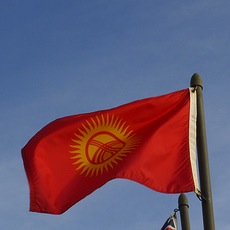Ahead of the presidential elections to be held in Kyrgyzstan on 30 October, 2011, the Central Elections Committee (CEC) came out with a controversial decision, barring web-based news media from taking part in the campaign. Eleven news sites were denied accreditation to inform voters on the pre-election developments.
This step taken by the CEC stirred up active discussions in blogs, web-based media, political observers and NGOs, revealing challenges to the development of Internet in Kyrgyzstan. According [ru] to CEC spokeswoman Tolgonai Samatalieva:
The Kyrgyz Law on mass media does not regard web-based news agencies as media outlets; that is why they cannot generate revenue from promotion of the candidates.
NGO leaders responded immediately. ‘Progress in Kyrgyzstan’ foundation protested [ru]:
Such a decision restricts the voters’ rights to receive information about elections and constrains presidential candidates’ campaigning opportunities. The presidential election is one of the most important upcoming events in Kyrgyzstan, and news websites are the media that can provide the most comprehensive coverage.
Head of the CEC, Tuygunali Abdraimov, rejected [ru] all accusations:
Web-based news agencies do not want to be considered as mass media outlets. They don't want any changes in the media legislation, and we cannot break the law.
General Director of the news website Vesti.Kg, Oksana Filyug, opined [ru]:
The CEC has exempted us of liability by saying that we are not mass media outlets. That means, everything that is prohibited for the mainstream media, cannot be applied to us. But the more interesting question is why the authorities had been allowing websites to participate in the elections earlier? Why have they now decided to sideline us? Who stands behind it and what shall we expect? Who will control online activities in the campaign period of the presidential elections, and how?
Daniyar Karimov from the website 24.kg continued [ru]:
The CEC decision limits citizens’ right to free access to information. Interestingly, in the Information Age, when Internet resources are the main and effective information source, the Kyrgyz government does not consider those as mass media. Such decisions are a beginning of total censorship and an attempt to control activities of information agencies.
Bloggers and forum users have different opinions on the CEC decision. According to Erorist [ru]:
The CEC has made the right conclusion, news agencies cannot participate in campaign processes, because they have to provide unbiased information. But the question is why the CEC makes such decisions, not the parliament.
Adam wonders [ru]:
Then what about websites of the political parties and blogs of the candidates? What is their difference from “news agencies”?
Web-based news agencies have more freedom of speech; they do not want to lose it, or to have problems with government, like printed media usually do. However, it is more an indicator of the lacking freedom of speech in Kyrgyzstan, rather than of technical problems with registration of news agencies
Adam adds [ru].
Very good decision. If agencies want to earn money they have to be officially registered. When they want to participate in the elections, they seek accreditation as mass media, but when they are accused of slander or libel, they declare that they are not mass media and have no responsibility
Ggg-fff writes [ru]:
The most efficient agitation tool is the Internet. It was proved by the Arabic revolutions. It is cheap and handy, you don’t have to endanger your life by delivering printed materials or spend a lot of money to be published in the newspapers. They restrain web-based news agencies, because they want newspapers to earn more, and it is easier to control printed media
Leader of the ‘Butun Kyrgyzstan’ party Adahan Madumarov agrees [ru]:
Among all publications, web-based news agencies are the most independent. That is why there are serious attempts to bar them from participating in agitation campaigns.
Meanwhile, Ahmat Keldibekov, speaker of the Parliament of Kyrgyzstan, voiced [ru] a cautious supposition that – given the importance of the Internet in the distribution of information – the websites could be given the right to participate in the campaigns.
Pre-election campaigning will start on September 25. Discussions are still heated, and they will hardly calm down as the presidential election gets closer.








5 comments
That’s really outrageous
Issue is being positively solved. Will keep you informed